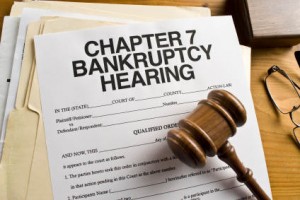 Chapter 13 bankruptcy cases can last three to five years. During the bankruptcy case, the debtor makes payments to a trustee who in turn pays the creditors as per the terms of the Chapter 13 plan. In order to continue in the bankrupty case the debtor must make his plan payment each month. However, a lot can happen during a Chapter 13 bankruptcy that may affect the debtor’s ability to make payments. He may lose his job. He may get divorced. He may get sick, injured, or even die. The bottom line is that many debtors that start Chapter 13 cases never finish them because something happens that affects their ability to continue in the case.
Chapter 13 bankruptcy cases can last three to five years. During the bankruptcy case, the debtor makes payments to a trustee who in turn pays the creditors as per the terms of the Chapter 13 plan. In order to continue in the bankrupty case the debtor must make his plan payment each month. However, a lot can happen during a Chapter 13 bankruptcy that may affect the debtor’s ability to make payments. He may lose his job. He may get divorced. He may get sick, injured, or even die. The bottom line is that many debtors that start Chapter 13 cases never finish them because something happens that affects their ability to continue in the case.
When a Chapter 13 bankruptcy debtor experiences a change in circumstance that affects his ability to make payments, the first thing he should do is contact his bankruptcy attorney. Chapter 13 plan payments can sometimes be reduced when the filer experiences an increase in expenses or a decrease in income. In some cases the debtor may even be able to convert the case to Chapter 7 and get a discharge in a few months with no more trustee payments.
There are eligibilty limitations for a Chapter 7 discharge. First, in order to convert a case to Chapter 7, the debtor must show that he does not have the ability to make meaningful payments to his unsecured creditors. This is shown by filing a means test. A means test calculates the debtor’s disposable income. If the debtor has little or no disposable income then they qualify for discharge under Chapter 7. Second, the debtor must not have filed a prior Chapter 7 case and received a discharge under Chapter 7 during the last eight years.
Another thing that should be considered is what will happen to the debtor’s secured property after converting the case. If the debtor is paying mortgage arrears or a car note in the Chapter 13 bankruptcy case, then he may not be able to keep the property if he converts the case to Chapter 7. In order to keep secured property in Chapter 7, the debtor must stay current on payments to the secured lenders.